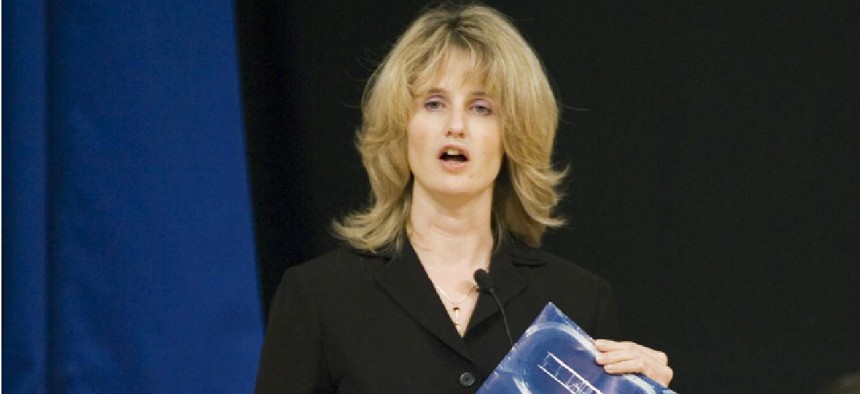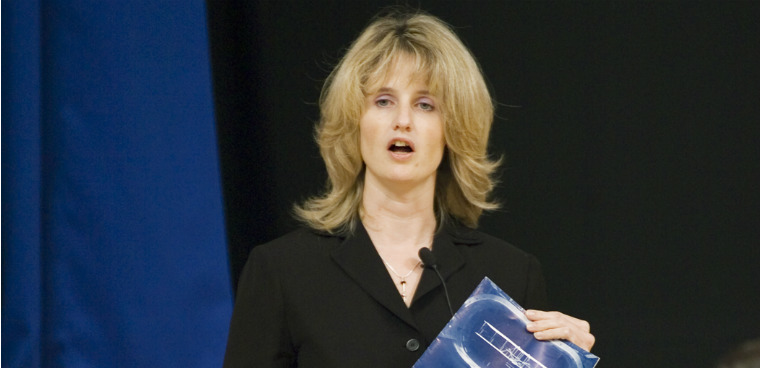White House names deputy undersecretary for DOD R&E

Lisa Porter, the executive vice president of CIA venture arm In-Q-Tel and director of IQT Labs, would help run the Pentagon's newly reorganized IT and R&D operations.

Lisa Porter, shown here during her time as a NASA official.
The White House has nominated Lisa Porter, the executive vice president of In-Q-Tel and director of IQT Labs, to serve as the Defense Department's deputy undersecretary for research and engineering.
Porter comes to the position with a background and pedigree in defense technology. In addition to her work at In-Q-Tel, Porter has significant government experience, with previous stints as director of the Intelligence Advanced Research Projects Activity, associate administrator for aeronautics at NASA and as a program manager in the Advanced Technology Office at the Defense Advanced Research Projects Agency.
Porter also has a bachelor's degree in nuclear engineering from the Massachusetts Institute for Technology and a doctorate in applied physics from Stanford University.
The Research and Engineering Enterprise helps set technology strategy for DoD, study emerging and future technology threats and capabilities the military is likely to face from other nations and accelerate technology acquisition across the department. The office will also advise the secretary of defense on "key investments to retain technical superiority based on the analytical rigor and understanding of risk" associated with those technologies.
If confirmed by the Senate, Porter will join new Research and Engineering Undersecretary Michael Griffin as the Trump administration continues to fill out leadership for the new office, which emerged out of the Department of Defense restructuring of the Acquisition, Technology and Logistics Organization in February 2018. Griffin, who also worked as chief operating officer at In-Q-Tel, was confirmed to his position on Feb. 15, 2018.
In-Q-Tel is a venture capital firm founded by the Central Intelligence Agency in 1999 to invest in emerging technologies. It is not immediately clear who will replace Porter. Multiple calls and emails to the firm were not returned by press time.


